From civil rights to women’s liberation to Black Lives Matter, poetry has been a way to rail against complacency and oppression. These six poets—brave enough to share personal experiences, unpopular points of view, and lesser-known narratives—have shed light on the marginalized experience and ultimately defined poetic activism as we know it today.
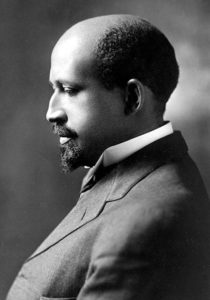
W.E.B. Du Bois (1868 – 1963)
American sociologist, historian, civil rights activist, and author, W.E.B. Du Bois landed himself among the literary canon through his powerful works that protested against lynching, Jim Crow Laws, and discrimination in education and employment.
Du Bois was the first African American to earn a doctorate, becoming a professor of history, sociology, and economics at Atlanta University. He also became one of the founders of the National Association for the Advancement of Colored People (NAACP) in 1909.
Du Bois is best known for his essay collection, The Souls of Black Folk (1903) and his later work Black Reconstruction in America (1935). His poem, “My Country ‘Tis of Thee” turns the familiar patriotic tune of “America” on its head by evoking the injustices of slavery with the same rhyme scheme as the original song.
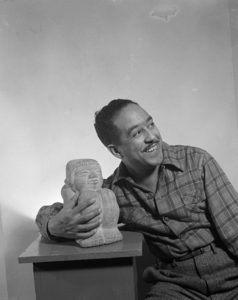
Langston Hughes (1902-1967)
Langston Hughes is best known as a central figure of the Harlem Renaissance. This, of course, was in part thanks to W.E.B. Du Bois, who first published Hughes in 1921 in The Crisis, the official magazine of the NAACP. Hughes aimed to create a nuanced and honest portrayal of working-class black lives and was met with both acclaim and criticism.
Hughes had worked a variety of jobs across the U.S. prior to the publication of his first book. He’d been a truck farmer, cook, waiter, sailor, doorman, and college graduate. Many of his personal experiences and background are seen in his writing. The poem “Brass Spittoons,” for example, tells the story of a man who cleans hotel spittoons to buy shoes and pay rent, yet his weekend life is much more vibrant than that.
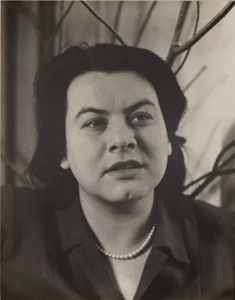
Muriel Rukeyser (1913-1980)
Muriel Rukeyser is an American poet and political activist whose work focused on equality, feminism, social justice, and Judaism. She openly opposed the Vietnam War and attempted to visit poet Kim Chi-Ha on death row in South Korea.
In 1958, Rukeyser signed the “Writers and Editors War Tax Protest” pledge, vowing to refuse tax payments in protest against the Vietnam War. She’s best known for The Book of the Dead (1938) which detailed The Hawkes Nest Tragedy—an industrial disaster in which hundreds of miners died of silicosis. In her poem “George Robinson: Blues,” Rukeyser describes the horrifying mistreatment of the miners, even using an excerpt from victim George Robinson’s testimony:
“As dark as I am, when I came out at morning after the tunnel at night, with a white man,
nobody could have told which man was white.”
Robinson, and in turn Rukeyser, are referring to the silica dust which coated the miners so heavily that onlookers could not see their skin color.
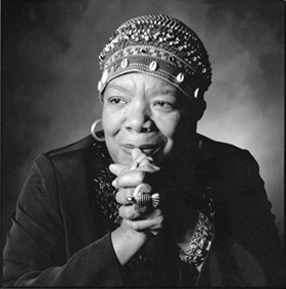
Maya Angelou (1928-2014)
It’s no secret that Maya Angelou left a lasting impact through her work. As a civil rights activist, she worked directly for Martin Luther King Jr. and Malcolm X. Influenced by other activist authors like Langston Hughes and W.E.B. Du Bois, Angelou provides a real, personal, and visceral narrative taking on themes of submission, guilt, protest, and survival.
Best known for her autobiography, I Know Why the Caged Bird Sings, Angelou’s writing possesses a poetic balance of frankness and beauty. One of her most popular poems “Still I Rise” is an empowering anthem about overcoming injustice and prejudice and was the title track of Tupac’s third posthumous studio album in collaboration with the Outlawz.
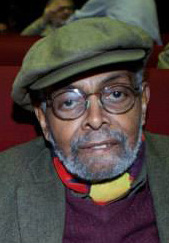
Amiri Baraka (1934-2014)
This New Jersey-born poet is known for his subversive and fiery social criticism. Unabashedly confrontational, his work shocks audiences as he speaks out against oppression. However, Baraka was not such a polarizing figure until the onset of the civil rights movement. When he turned from his early beat influences and took on more politically charged topics. He eventually moved to Harlem and founded the Black Arts Repertory Theater, which became a defining institution of the Black Arts movement.
His poetry collection Black Magic (1961) details his departure from white culture. From there, his writing became increasingly political, and in turn, increasingly criticized.
In his poem “A Short Speech to My Friends,” he directly addresses critics, writing “A compromise / would be silence. To shut up, even such risk / as the proper placement of verbs and nouns. To freeze the spit / in mid-air, as it aims itself / at some valiant intellectual’s face.” Baraka’s refusal to tame his language and de-escalate his content is credited for opening tightly guarded doors in the white publishing establishment.
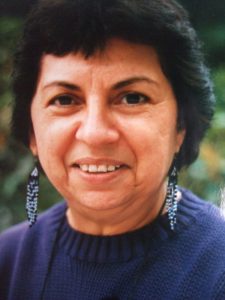
Gloria E. Anzaldúa (1942-2004)
Chicana poet, queer writer, and feminist theorist, Gloria E. Anzaldúa is considered a groundbreaking writer through her book Borderlands/La Frontera: The New Mestiza (1987). The book chronicles her upbringing at the Mexican-Texan border. The book is split into two parts: one of prose and feminist theory, and the other a collection of her poems.
Her poem “To Live in the Borderlands” is a poignant sample of her collection as it expresses her feelings of being torn between cultures. She writes that she is “caught in the crossfire between camps / while carrying all five races on [her] back.” This collection ultimately became one of the first to give a voice to the marginalized groups of mixed-race peoples living along the border.
From Du Bois to Anzaldúa and beyond, poet activists refuse to accept a limited experience of the world. They strive to provide a voice for those who have been stifled, show a multitude of truths and experiences, and let people know that they are not alone.




